
NC State’s Rodolphe Barrangou Elected to National Academy of Sciences
CRISPR pioneer Rodolphe Barrangou has been elected to one of the world’s most prestigious and influential scientific societies....Continue reading "NC State’s Rodolphe Barrangou Elected to National Academy of Sciences"
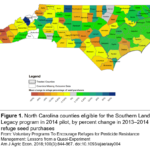
Publication: Voluntary Programs To Encourage Refuges for Pesticide Resistance Management
Dr. Zack Brown, assistant professor of agricultural economics and GES Center Executive Committee member, has published an article in the American Journal of Agricultural Economics which examines the implications of using behavioral approaches to managing pesticide...
Jennifer Kuzma in the WSJ: Referring to gene-editing as “breeding” seems disingenuous
Is This Tomato Engineered? Inside the Coming Battle Over Gene-Edited Food The agriculture industry, which hopes Crispr technology will transform the business, faces opponents who call it ‘GMO 2.0’ By Jacob Bunge and Amy Dockser...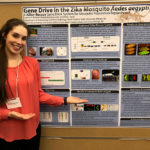
Student spotlight: Sophia Webster wins 1st place at Graduate Student Research Symposium
Kudos to Sophia Webster, a GES PhD candidate in Entomology and Plant Pathology, for winning first place at Graduate Student Research Symposium! Sophia is part of the 2012 IGERT cohort whose focus is mosquitoes and human health. The first IGERT course took place in Lima and Iquitos, Peru where the cohort attended tropical medicine symposiums, visited health clinics and several farms to speak with farmers. The cohort also shadowed NAMRU workers door to door in in Iquitos as the workers completed their household mosquito checks and surveys. Additionally, the cohort conducted household experiments on the density dependent effects of mosquito larvae in household containers....
Space for the Social Sciences in Engineering Biology
I had the pleasure of attending the Canada SynBio 2018 Conference “Engineering Biology for Health, Food and the EnvIronment in Toronto last week. While I’ve been to many such events in the United States, this...Continue reading "Space for the Social Sciences in Engineering Biology"
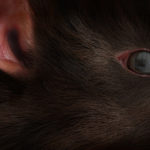
WIRED: Process of Elimination
A deep dive into the inception of the Genetic Biocontrol of Invasive Rodents (GBIRd) program, this article in WIRED details how Karl Campbell of Island Conservation came across GES Co-Director Fred Gould's research suggesting that the genetic engineering techniques being used to manage insect populations could also be applied to other species, like rodents. And then, what happened when CRISPR came along....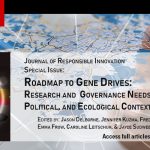
Journal of Responsible Innovation publishes ‘Roadmap to Gene Drives’ special issue
The Genetic Engineering and Society Center at NC State hosted a workshop in February of 2016, supported in part by the National Science Foundation, entitled ‘A Roadmap to Gene Drives: A Deliberative Workshop to Develop...
Barrangou Wins NAS Prize in Food and Agriculture Sciences
Dr. Rodolphe Barrangou adds another award to his long list of accolades: the 2018 NAS Prize in Food and Agriculture Sciences for his discovery of the genetic mechanisms and proteins driving CRISPR-Cas systems....Continue reading "Barrangou Wins NAS Prize in Food and Agriculture Sciences"

Barrangou Wins NAS Prize in Food and Agriculture Sciences
Dr. Rodolphe Barrangou adds another award to his long list of accolades: the 2018 NAS Prize in Food and Agriculture Sciences for his discovery of the genetic mechanisms and proteins driving CRISPR-Cas systems....Continue reading "Barrangou Wins NAS Prize in Food and Agriculture Sciences"
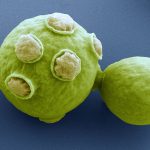
Gould quoted in Nature on synthetic organisms unable to breed with wild counterparts
Fred Gould is quoted in Nature, discussing a gene editing technique designed to make interbreeding between synthetic and wild organisms impossible. The technology, which targets gene expression, could be applied to mosquitoes to control infectious diseases, such as malaria, or to invasive species, like Asian carp. "This is an ingenious system."...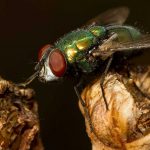
Scott Lab Research Featured During Visit from Central American Officials
Written by Melinia Florez-Cuadros At NC State, Dr. Max Scott and his lab are engineering transgenic strains of sheep blowfly, which is a pest species in Australia but also serves as model system for the New...Continue reading "Scott Lab Research Featured During Visit from Central American Officials"

Jennifer Kuzma on Institute for Emerging Issues First in Future podcast
December 12, 2017 Dr. Jennifer Kuzma speaks with Leslie Boney, Director of the Institute for Emerging Issues (IEI) at NC State on the First in Future podcast. In this pod, Dr. Kuzma discusses gene edited...Continue reading "Jennifer Kuzma on Institute for Emerging Issues First in Future podcast"

Gene Drives and Responsible Innovation
It is not often that a new technology is at once hailed as a potential solution to pandemic disease, wildlife conservation and hunger, while also being feared as a potential military and environmental “bioweapon.” Gene drives,...
Funders respond to NASEM Gene Drive study
Funders of the National Academy of Sciences consensus study Gene Drives on the Horizon (2016) have published a response to the report in the December 2017 issue of Science. The study summarized "current understanding of the scientific discoveries related to gene drives and their accompanying ethical, legal, and social implications," and was co-authored by Dr. Jason Delborne, associate professor of science, policy and society in the College of Natural Resources and executive committee member of the GES Center....Continue reading "Funders respond to NASEM Gene Drive study"

Jason Delborne appointed to National Academies Forest Biotech Study Committee
Dr. Jason Delborne has been appointed to the National Academies of Sciences provisional committee on The Potential for Biotechnology to Address Forest Health, or Forest Biotech Study. The study will be looking at the potential uses of biotechnology to mitigate threats to forest tree health, identify ecological, ethical, and societal implications of using this technology in forests, and develop an agenda to address knowledge gaps in its application. ...Continue reading "Jason Delborne appointed to National Academies Forest Biotech Study Committee"